The first track from the album City Of Light, by Bill Laswell. It was released Jun 17, 1997 on the Sub Rosa label. In conjunction with the spiritually-infused spoken lines of Lori Carson, Laswell and his crew unearth rhythms seared from volcanic chasms, old tongues, and primitive civilizations.
· · · Jah Wobble & Lori Carson / Featuring⇒Trilok Gurtu on Tablas→
•→ Ohm Shanti [Asana – volume 4]⇐
∞ Bill Laswell & Azzddine ⇒‘Droub Al Lil’ [Barbarity 023] ⇒‘Takassim’⇐
∇ Bill Laswell Sacred System ⇓ ‘Black Lotus’ [Nagual Site]
•→‘Lightning Teleportation’ [Points of Order, 2001]
Φ Tabla Beat Science
[Live at Fillmore, San Francisco 2002]
Bill Laswell -bass; Ustad Sultan Khan -vocals, sarangi; Ejigayehu ‘ Gigi’ Shibabaw -vocals; Zakir Hussain -tabla; Karsh Kale –drums, tabla; DJ Disk -turntables; MIDIval PunditZ -laptop; Fabian Asultany -keyboards• Mengedenga →
How can I stop loving you, my love / My heart won’t heed my mindBetter to love a mountain / The one that never leaves, never abandons youTrue, it may not kiss my lips like you do / It may not caress my breasts the way you doIt may not let me look into its eyes the way you do / It will bask in the sun that washes its crest I thought I had found the path to take me far from you / It seems to turn and bring me back to youMy heart be wise, be smart my heart / Be careful who you love, stay with the one that’s rightTasty, like a roasted nut / Can’t stop with just a handfulAlways on the move, always on the road / My nights are long, longing for your eyesTasty, like a roasted nut / Can’t stop with just a handful In love with a hawk, I’m now a hawk myself / Tell me which skies to flyAlways on the move, always on the road / My nights are long, longing for your eyesTasty, like a roasted nut / Can’t stop with just a handful . . .◊ Ejigayehu Shibabaw: ⇒ Nafekegn ← [Gigi – 2001]
«Missing home, my three-meal days / Mother’s sweet face / Extended family, that joyful place …. . . Stories in the house, gossip in the village / I miss it all, I miss that place I call my home.»♦ Tala Matrix ⇓
•→Axiom Sound System⇐[feat. Nils Petter Molvaer 2006]
♦ Material w/ Nils Petter Molvaer ↓ ‘Black Lotus’
<
•→ Bill Laswell & Jah Wobble _ Alam Dub [RadioAxiom – A Dub Transmission]
Θ Fanu & Bill Laswell _⇒ ‘Shroud’ ⇐ [Lodge, 2008]
♣ Bill Laswell Axiom Sound System ↓ w/ Pharoah Sanders
• • • Part 1 ⇓
•→Bill Laswell, Eraldo Bernocchi & Toshinori Kondo: ‘Cleared’ [Charged_1999]
♦ Bill Laswell presents⇒ Tokyo Rotation ⇐ w/ Toshinori Kondo, Dj Krush & Hideo Yamaki (2009)
∞ Hakim Bey & Bill Laswell ↓ ‘Poetic Terrorism‘ (T.A.Z. – 1994)
Weird dancing in all-night computer-banking lobbies. Unauthorized pyrotechnic displays. Land-art, earth-works as bizarre alien artifacts strewn in State Parks. Burglarize houses but instead of stealing, leave Poetic-Terrorist objects. Kidnap someone & make them happy.
Pick someone at random & convince them they’re the heir to an enormous, useless & amazing fortune – say 5000 square miles of Antarctica, or an aging circus elephant, or an orphanage in Bombay, or a collection of alchemical manuscripts. Later they will come to realize that for a few moments they believed in something extraordinary, and will perhaps be driven as a result to seek out some more intense mode of existence.
Bolt up brass commemorative plaques in places (public or private) where you have experienced a revelation or had a particularly fulfilling sexual experience...
Go naked for a sign. Organize a strike in your school or workplace on the grounds that it does not satisfy your need for indolence and spiritual beauty.
Grafitti art loaned some grace to ugly subways & rigid public monuments – PT-art can also be created for public places: poems scrawled in courthouse lavatories, small fetishes abandoned in parks and restaurants, xerox-art under windshield-wipers of parked cars, Big Character Slogans pasted on playground walls, anonymous letters mailed to random or chosen recipients (mail fraud), pirate radio transmissions, wet cement…
The audience reaction or æsthetic-shock produced by PT ought to be at least as strong as the emotion of terror – powerful disgust, sexual arousal, superstitious awe, sudden intuitive breakthrough, dadaesque angst – no matter whether the PT is aimed at one person or many, no matter whether it is “signed” or anonymous, if it does not change someone’s life (aside from the artist) it fails.
PT is an act in a Theater of Cruelty which has no stage, no rows of seats, no tickets and no walls. In order to work at all, PT must categorically be divorced from all conventional structures for art consumption (galleries, publications, media…) Even the guerrilla Situationist tactics of street theater are perhaps too well known and expected now.
An exquisite seduction carried out not only in the cause of mutual satisfaction but also as a conscious act in a deliberately beautiful life – may be the ultimate PT. The PTerrorist behaves like a confidence-trickster whose aim is not money but change.
Don’t do PT for other artists, do it for people who will not realize (at least for a few moments) that what you have done is art. Avoid recognizable art-categories, avoid politics, don’t stick around to argue, don’t be sentimental; be ruthless, take risks, vandalize only what must be defaced, do something children will remember all their lives – but don’t be spontaneous unless the PT Muse has possessed you.
Dress up. Leave a false name. Be legendary. The best PT is against the law, but don’t get caught. Art as crime; crime as art.
•→Babylon Site ⇐ / •→Cuban beats ⇐
÷ ÷ ÷ ÷ ÷ ÷
¤ David Byrne
Ex-vocalist of the Talking Heads, David Byrne has just published a book: How Music Works ⇔
Idiosyncratic, informative, and drily funny, his book is neither the typical aging rock star’s autobiography nor a how-to about performing or songwriting. Aimed at a general audience, it grapples with the ways music is shaped by technology, venue, and the expectations of its  audiences.
audiences.
“People tend to think a piece of music is the way it is because that’s the way the musicians wanted to express what they had to say,” Byrne says. “And I’m saying that there are an awful lot of other factors molding the finished product.” [Malcolm Jones]
←David Byrne on Mexican TV promoting the bicycle
I’ve been riding a bicycle as my principal means of transportation in New York since the early 1980s. I tentatively first gave it a try, and it felt good even here in New York. I felt energized and liberated. I had an old three-speed leftover from my childhood in the Baltimore suburbs, and for New York City that’s pretty much all you need. My life at that time was more or less restricted to downtown Manhattan—the East Village and SoHo—and it soon became apparent to me that biking was an easy way to run errands in the daytime or efficiently hit a few clubs, art openings, or nightspots in the evening without searching for a cab or the nearest subway. I know, one doesn’t usually think of nightclubbing and bike riding as being soul mates, but there is so much to see and hear in New York, and I discovered that zipping from one place to another by bike was amazingly fast and efficient. So I stuck with it, despite the aura of uncoolness and the danger, as there weren’t many people riding in the city back then. Car drivers at that time weren’t expecting to share the road with cyclists, so they would cut you off or squeeze you into parked cars even more than they do now. As I got a little older I also may have felt that cycling was a convenient way of getting some exercise, but at first I wasn’t thinking of that. It just felt good to cruise down the dirty potholed streets. It was exhilarating.
By the late ’80s I’d discovered folding bikes, and as my work and curiosity took me to various parts of the world, I usually took one along. That same sense of liberation I experienced in New York recurred as I pedaled around many of the world’s principal cities. I felt more connected to the life on the streets than I would have inside a car or in some form of public transport: I could stop whenever I wanted to; it was often (very often) faster than a car or taxi for getting from point A to point B; and I didn’t have to follow any set route. The same exhilaration, as the air and street life whizzed by, happened again in each town. It was, for me, addictive.
This point of view—faster than a walk, slower than a train, often slightly higher than a person—became my panoramic window on much of the world over the last thirty years—and it still is. It’s a big window and it looks out on a mainly urban landscape. (I’m not a racer or sports cyclist.) Through this window I catch glimpses of the mind of my fellow man, as expressed in the cities he lives in. Cities, it occurred to me, are physical manifestations of our deepest beliefs and our often unconscious thoughts, not so much as individuals, but as the social animals we are. A cognitive scientist need only look at what we have made—the hives we have created—to know what we think and what we believe to be important, as well as how we structure those thoughts and beliefs. It’s all there, in plain view, right out in the open; you don’t need CAT scans and cultural anthropologists to show you what’s going on inside the human mind; its inner workings are manifested in three dimensions, all around us. Our values and hopes are sometimes awfully embarrassingly easy to read. They’re right there—in the storefronts, museums, temples, shops, and office buildings and in how these structures interrelate, or sometimes don’t. They say, in their unique visual language, “This is what we think matters, this is how we live and how we play.” Riding a bike through all this is like navigating the collective neural pathways of some vast global mind. It really is a trip inside the collective psyche of a compacted group of people. A Fantastic Voyage, but without the cheesy special effects. One can sense the collective brain—happy, cruel, deceitful, and generous—at work and at play. Endless variations on familiar themes repeat and recur: triumphant or melancholic, hopeful or resigned, the permutations keep unfolding and multiplying.
Yes, in most of these cities I was usually just passing through. And one might say that what I could see would therefore by definition be shallow, limited, and particular. That’s true, and many of the things I’ve written about cities might be viewed as a kind of self-examination, with the city functioning as a mirror. But I also believe that a visitor staying briefly can read the details, the specifics made visible, and then the larger picture and the city’s hidden agendas emerge almost by themselves. Economics is revealed in shop fronts and history in door frames. Oddly, as the microscope moves in for a closer look, the perspective widens at the same time.
Each chapter in this book focuses on a particular city, though there are many more I could have included. Not surprisingly, different cites have their own unique faces and ways of expressing what they feel is important. Sometimes one’s questions and trains of thought almost seem predetermined by each urban landscape. So, for example, some chapters ended up focusing more on history in the urban landscape while others look at music or art—each depending on the particular city.
Naturally, some cities are more accommodating to a cyclist than others. Not just geographically or because of the climate, though that makes a difference, but because of the kinds of behavior that are encouraged and the way some cities are organized, or not organized. Surprisingly, the least accommodating are sometimes the most interesting. Rome, for example, is amazing on a bike. The car traffic in central Italian cities is notoriously snarled, so one can make good time on a bike, and, if the famous hills in that town are avoided, one can glide from one amazing vista to the next. It’s not a bike-friendly city by any means—the every-man-for-himself vibe hasn’t encouraged the creation of secure bike lanes in these big towns—but if one accepts that reality, at least temporarily, and is careful, the experience is something to be recommended.
These diaries go back at least a dozen years. Many were written during work-related visits to various towns—for a performance or an exhibit, in my case. Lots of folks have jobs that take them all over the world. I found that biking around for just a few hours a day—or even just to and from work—helps keep me sane. People can lose their bearings when they travel, unmoored from their familiar physical surroundings, and that somehow loosens some psychic connections as well. Sometimes that’s a good thing—it can open the mind, offer new insights— but frequently it’s also traumatic in a not-so-good way. Some people retreat into themselves or their hotel rooms if a place is unfamiliar, or lash out in an attempt to gain some control. I myself find that the physical sensation of self-powered transport coupled with the feeling of self-control endemic to this two-wheeled situation is nicely empowering and reassuring, even if temporary, and it is enough to center me for the rest of the day.
It sounds like some form of meditation, and in a way it is. Performing a familiar task, like driving a car or riding a bicycle, puts one into a zone that is not too deep or involving. The activity is repetitive, mechanical, and it distracts and occupies the conscious mind, or at least part of it, in a way that is just engaging enough but not too much—it doesn’t cause you to be caught off guard. It facilitates a state of mind that allows some but not too much of the unconscious to bubble up. As someone who believes that much of the source of his work and creativity is to be gleaned from those bubbles, it’s a reliable place to find that connection. In the same way that perplexing problems sometimes get resolved in one’s sleep, when the conscious mind is distracted the unconscious works things out.
During the time these diaries were written I have seen some cities, like New York, become more bike-friendly in radical new ways, while in others the changes have been slow and incremental—they have yet to reach a tipping point as far as accepting cycling as a practical and valid means of transportation. Some cities have managed to find a way to make themselves more livable, and have even reaped some financial rewards as a result, while others have sunk deeper into the pits they started digging for themselves decades ago. I discuss these developments, urban planning, and policy in the New York City chapter, as well as describe my limited involvement in local politics (and entertainment) as it pertains to making my city more bike-friendly, and, I think, a more human place to live.
∇ A lecture on how architecture helped music evolve ⇓
∇ ‘Listening Wind’ ⇓
Mojique sees his village from a nearby hill
Mojique thinks of days before Americans came
He sees the foreigners in growing numbers
He sees the foreigners in fancy houses
He thinks of days that he can still remember…now.
Mojique holds a package in his quivering hands
Mojique sends the package to the American man
Softly he glides along the streets and alleys
Up comes the wind that makes them run for cover
He feels the time is surely now or never…more.
The wind in my heart – The wind in my heart
The dust in my head – The dust in my head
The wind in my heart – The wind in my heart
(Come to) Drive them away – Drive them away.
Mojique buys equipment in the market place
Mojique plants devices in the free trade zone
He feels the wind is lifting up his people
He calls the wind to guide him on his mission
He knows his friend the wind is always standing…by.
Mojique smells the wind that comes from far away
Mojique waits for news in a quiet place
He feels the presence of the wind around him
He feels the power of the past behind him
He has the knowledge of the wind to guide him…on.
The wind in my heart . . .
♣ Jonathan Demme’s concert movie: ‘Stop Making Sense’_1984
∇ ‘Heaven’ ⇓•→’ Slippery People’ ↓
href=»https://www.youtube.com/watch?v=HFS2oz-i3Ik» target=»_blank» rel=»attachment noopener wp-att-50120 noreferrer»>
•→ ‘What a day that was!‘ ⇐
♦→ ‘This Must Be The Place’ ⇓ [Live Jools Holland 2004]
Home is where I want to bePick me up and turn me roundI feel numb – burn with a weak heart(So I) guess I must be having funThe less we say about it the betterMake it up as we go alongFeet on the groundHead in the skyIt’s ok I know nothing’s wrong . . nothingHi yo I got plenty of timeHi yo you got light in your eyesAnd you’re standing here beside meI love the passing of timeNever for moneyAlways for loveCover up & say goodnight . . . say goodnight Home – is where I want to beBut I guess I’m already thereI come home – she lifted up her wingsI guess that this must be the placeI can’t tell one from anotherDid I find you, or you find me?There was a time before we were bornIf someone asks, this where I’ll be . . . where I’ll beHi yo We drift in and outHi yo sing into my mouthOut of all those kinds of peopleYou got a face with a viewI’m just an animal looking for a homeShare the same space for a minute or twoAnd you love me till my heart stopsLove me till I’m deadEyes that light up, eyes look through youCover up the blank spotsHit me on the head Ah ooh♦ ‘The Sound Of Business’ ⇑ [Music for the Knee Plays] – 1988
They were driving south on the highway
Their business was in another town
Bigger than the town they were driving from
Business took place during office hours in both towns
This drive was considered business
The feeling of passing other cars was also considered business
A feeling of business being done
The feeling of drifting slowly through a field of moving vehicles
This was the real speed…the speed of business
Not the numbers on the speedometer
One of them was playing with the radio
Slowly changing the channel from one station to another
Sometimes listening to both channels at once
On another channel a man was talking to another man on the telephone.
The other channel was playing oldies:
““Listening Wind” ”
“Gone for Good”
“Puzzle Power”
“Beechwood Serenade”
“Sunshine and Sugar”
“Golden Windows”
“Taste of Believing”
“Carnival Girl”
“Love Walks Away”
“Wishing Well”
“I Knew You Could”
“A Face Like That”
“Dark Highway”
“Shakin’ Venus”
“Colored Wheels”
“School of Heartache”
“Painted Smiles”
“Visit Me Quick”
“Lonesome Money”
♦ ‘In The Future’ ⇓ [«Music for the Knee Plays»_1988]
We love each other so much …We love each other so much that little children kept their distanceWe love each other so much that one can remember everything the other ever saidWe love each other so much that one would smell the other one and cryWe love each other so much it was a pleasure to grow old … In the future everyone will have the same haircut and the same clothes.In the future everyone will be very fat from the starchy diet…
In the future everyone will be very thin from not having enough to eat…
In the future it will be next to impossible to tell girls from boys, even in bed.
In the future men will be «super-masculine» and women will be «ultra-feminine.»
In the future half of us will be «mentally ill.»
In the future there will be no religion or spiritualism of any sort.
In the future the «psychic arts» will be put to practical use.
In the future we will not think that «nature» is beautiful.
In the future the weather will always be the same.
In the future no one will fight with anyone else.
In the future there will be an atomic war. In the future water will be expensive.
In the future all material items will be free.
In the future everyone’s house will be like a little fortress.
In the future everyone’s house will be a total entertainment center. In the future everyone but the wealthy will be very happy.
In the future everyone but the wealthy will be very filthy.
In the future everyone but the wealthy will be very healthy.
In the future TV will be so good that the printed word will function as an art form only.
In the future no one will live in cities.
In the future there will be mini-wars going on everywhere. In the future everyone will think about love all the time.In the future political and other decisions will be based completely on opinion polls.
In the future there will be machines which will produce a religious experience in the user.
In the future there will be groups of wild people, living in the wilderness.
In the future there will be only paper money, which will be personalized.
In the future there will be a classless society. In the future we will only get to go home once a year.
In the future we will stay home all the time.
In the future we will not have time for leisure activities.
In the future we will only «work» one day a week.
In the future our bodies will be shriveled up but our brains will be bigger.
In the future people will live in space. In the future no one will be able to afford TV or newspapers […] no one knows what’s going on
In the future everyone will have their own way-out style of clothes. In the future we will all eat our favorite foods but they will all be synthetic.
In the future we will make love to anything anytime anywhere.
In the future there will be so much going on that no one will be able to keep track of it.
∇ David Byrne & Twyla Tharp’s ballet ↓ (1983)
•→ . . . His Wife Refused . . . ↵
A great big house with nothing in it
He comes home, says, «Now wait a minute»
He’s comin’ in, she’s goin’ out
He turns around says, «What’s that about?»
Do what they like, the kid’s in school
Think she don’t know, now, who’s kidding who?
He turns around says, «Who wants to know?»
Open the door and there’s nobody home
Go ahead fill their heads
Go ahead fill their heads with poison
Take a look these people are savages
Take a look at their misfortune
I’m goin’ up I got a message
I’m gonna wait till I close the door
I’m gonna wrap, myself in blankets
I’m gonna, roll out, across the floor
Well the bride, bride and the groom
Run in a circle around their house
They’re goin’ out they’re comin’ in
Inside a circle around their house
These shoes don’t fit this tie don’t match
I’m gonna throw it away when I get home
I’m turned around I’m doin’ my best
I’m gonna wait until the light comes on
Yes, he’s the king and she’s the queen
Run in a circle around their house
Open the door and let them in
Inside a circle around their house
∞ Brian Eno & David Byrne: ⇒ ‘Regiment’ ⇐ [«My Life In The Bush Of Ghosts»_1981]
[2008] ↓ (A Calligraphic Tribute)
¤ Ride, Rise, Roar
A documentary film chronicling the Songs of David Byrne & Brian Eno Tour conducted by David Byrne in 2008–2009.
The film includes concert footage, footage of the planning and rehearsals for the tour, and exclusive interviews with Byrne, Eno, and the supporting musicians and dancers.
You may find yourself living in a shotgun shack
And you may find yourself in another part of the world
And you may find yourself behind the wheel of a large automobile
You may find yourself in a beautiful house, with a beautiful wife
You may ask yourself, «Well, how did I get here?»
Letting the days go by, let the water hold me down
Letting the days go by, water flowing underground
Into the blue again, after the money’s gone
Once in a lifetime, water flowing underground
And you may ask yourself, «How do I work this?»
And you may ask yourself, «Where is that large automobile?»
And you may tell yourself, «This is not my beautiful house»
And you may tell yourself, «This is not my beautiful wife»
Letting the days go by . . .
Same as it ever was, same as it ever was, same as it ever was . . .
Same as it ever was, same as it ever was
Water dissolving and water removing
There is water at the bottom of the ocean
Under the water, carry the water
Remove the water from the bottom of the ocean
Letting the days go by . . .
You may ask yourself, «What is that beautiful house?»
You may ask yourself, «Where does that highway go to?»
You may ask yourself, «Am I right, am I wrong?»
You may say to yourself, «My God! What have I done?»
Letting the days go by . . .
Same as it ever was, same as it ever was
Same as it ever was, look where my hand was
Letting the days go by – Letting the days go by
Once in a lifetime . . .
-
. ‘The Great Curve’←
For a long time I felt without style or grace
Wearing shoes with no socks in cold weather
I knew my heart was in the right place
I knew I’d be able to do these thingsAnd as we watch him digging his own grave
It is important to know that was where he’s at
He can’t afford to stop, that is what he believe
He’ll keep on digging for a thousand yearsI’m walking a line, I’m thinking about empty motion
I’m walking a line, just barely enough to be livingGet out of the way, no time to begin
This isn’t the time, so nothing was done
Not talking about, not many at all
I’m turning around, no trouble at allYou notice there’s nothing around you, around you
I’m walking a line, divide and dissolveNever get to say much, never get to talk
Tell us a little bit, but not too much
Right about then, is where she give up
She has closed her eyes, she has give up hopeI’m walking a line, I hate to be dreaming in motion
I’m walking a line, just barely enough to be livingGet out of the way, no time to begin
This isn’t the time, so nothing was done
Not talking about, not many at all
I’m turning around, no trouble at allI’m keeping my fingers behind me, behind me
I’m walking a line, divide and dissolveI’m walking a line, visiting houses in motion
I’m walking a line, just barely enough to be livingGet out of the way, no time to begin
This isn’t the time, so nothing was done
Not talking about, not many at all
I’m turning around, no trouble at allTwo different houses surround you, ‘round you
I’m walking a line, divide and dissolveI think I waited too long
I’m moving into the dollhouse
Some days we exercise – Some days we harmonize
Look away, look away, look away- oh yeah Emily said she’d suddenly waken
Look at that guy with the government coupon
Yoo hoo, yoo hoo, gonna get you
Japanese chairs in somebody’s concert
Telephone bills on the company paycheck
Who knew?, who knew?, I do Emily lost her mobile phone
Last nights dance on a bumpy road
I won’t go out in the cold
Lebanese Chinese in my school
Imagine who can make you cool
and in my […?]Fiercest cat, the hottest sun, the cheapest dog and the fastest gun
You got to hold the peelings in your hands, baby
It’s a little thing, it’s a Christian crime,it’s a bigger thing and you can’t hide
I took away the parts that need controlling Lebanese take their sailors home
The broken stuff in the outer wall
I’m moving out in the road
Memorize toilets, Chang Mai School
I like my song but I lost my cool
I need my laser, don’t movePut him in the ground where the Duchess grows
Where the word is true and the girls are strong
Gonna make it, step it, break it, going bye
Take another life of a wretched soul
When they get too high where the bushes grow
They rope it, stag it, push it side to side The chicken shack, the rising sun, the written word in a foreign tongue
You got to hold it all before it drops, baby
It’s a little bit, it’s a lot inside, it’s a bigger thing than you can hide
I took away the parts that need controllingHooligans jump in the budget sign in the tropic zone, where the fix is fine
Gonna make it, shake it, face it with my eye
Stinky little bird in a dirty tree Gonna figure out it’s your lucky day
If ya smell it, sell it, tell it to my mind
Lowered in the ground where the Duchess grows
Where the word is true and the girls are strong
Gonna stuff it, shake it, make it, going bye
Take another life of a wretched soul
If they get too high where the bushes grow
And they make it, squeeze it, push it side to side(I’m sayin’)
I feel my stuff
I get enough
I come back to be stronger
I feel my stuff
I changed my luck
I come back to be stronger∞ St Vincent & David Byrne ↓ Live @ Strathmore Music Center_2012
00:00 →Who [→video←]
04:33 →Strange Overtones
08:24 →Marrow
12:22 →The One Who Broke Your Heart
16:12 →I Am an Ape
19:26 →The Forest Awakes
24:42 →I Should Watch TV
28:20 →Lightning
÷ ÷ ÷ ÷


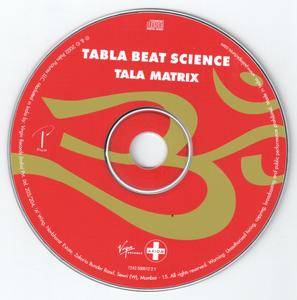
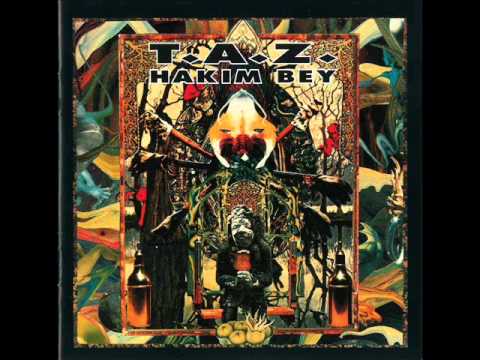

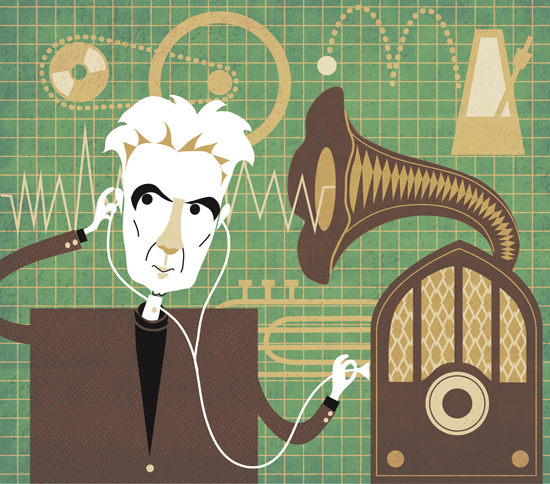


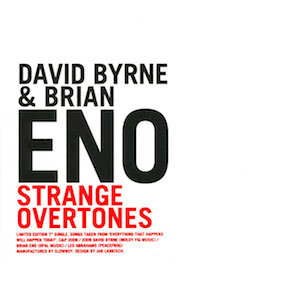
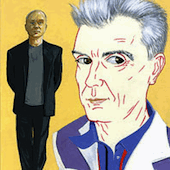
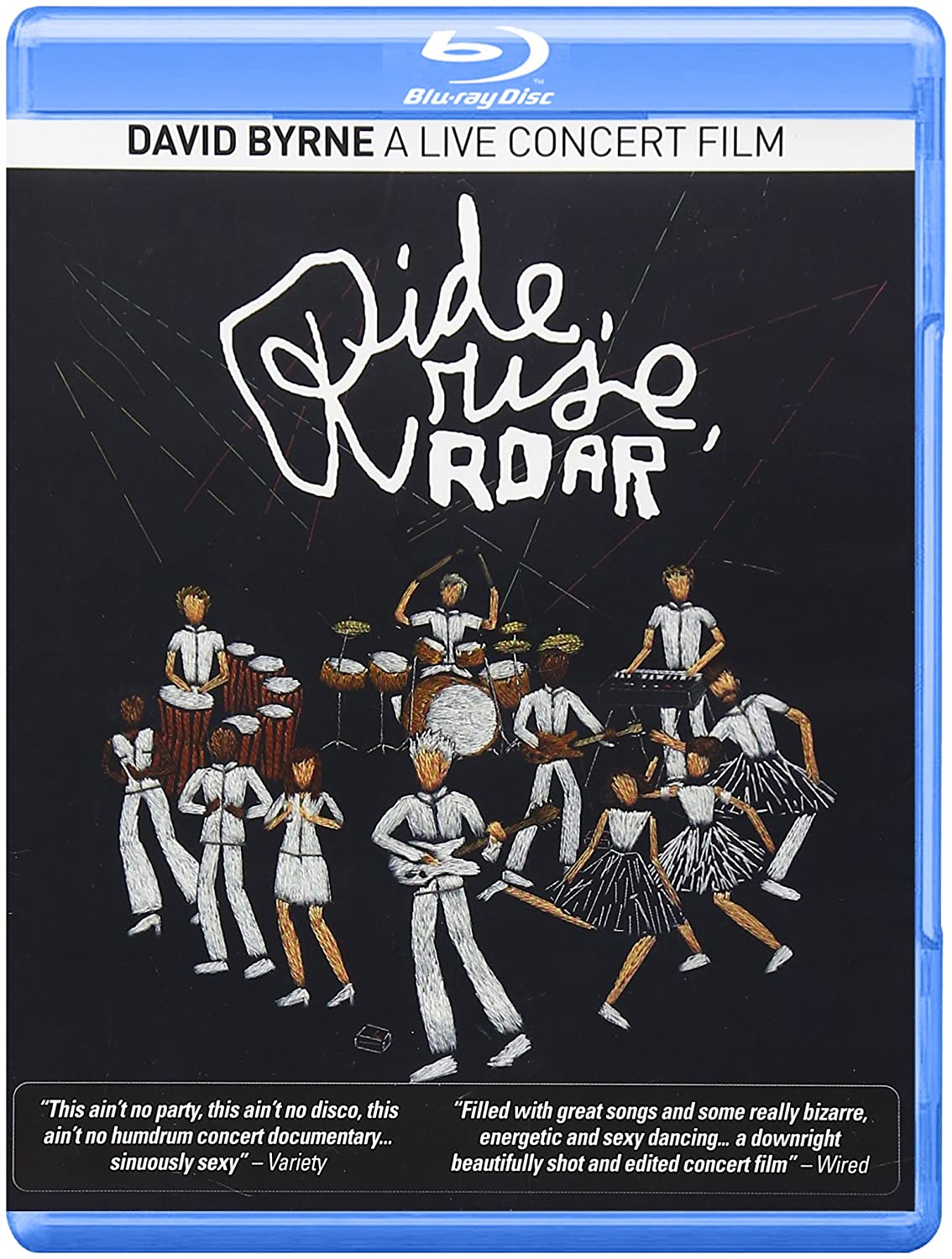

i want to thank you for the pleasure of reading this great post.http://www.automodelo.net
incredibly awesome.http://www.papajogosmario.com
wow, what an excellent presentation! going to follow your site now. thanks so much.http://www.gruporomer.com
Great work! This is the kind of information that are meant to be shared around the internet. Shame on Google for not positioning this post higher! Come on over and visit my site . Thank you =)
I gotta favorite this internet site it seems invaluable very beneficial
I really like your writing style, great info , thanks for posting : D.
Only wanna state that this is very helpful , Thanks for taking your time to write this.